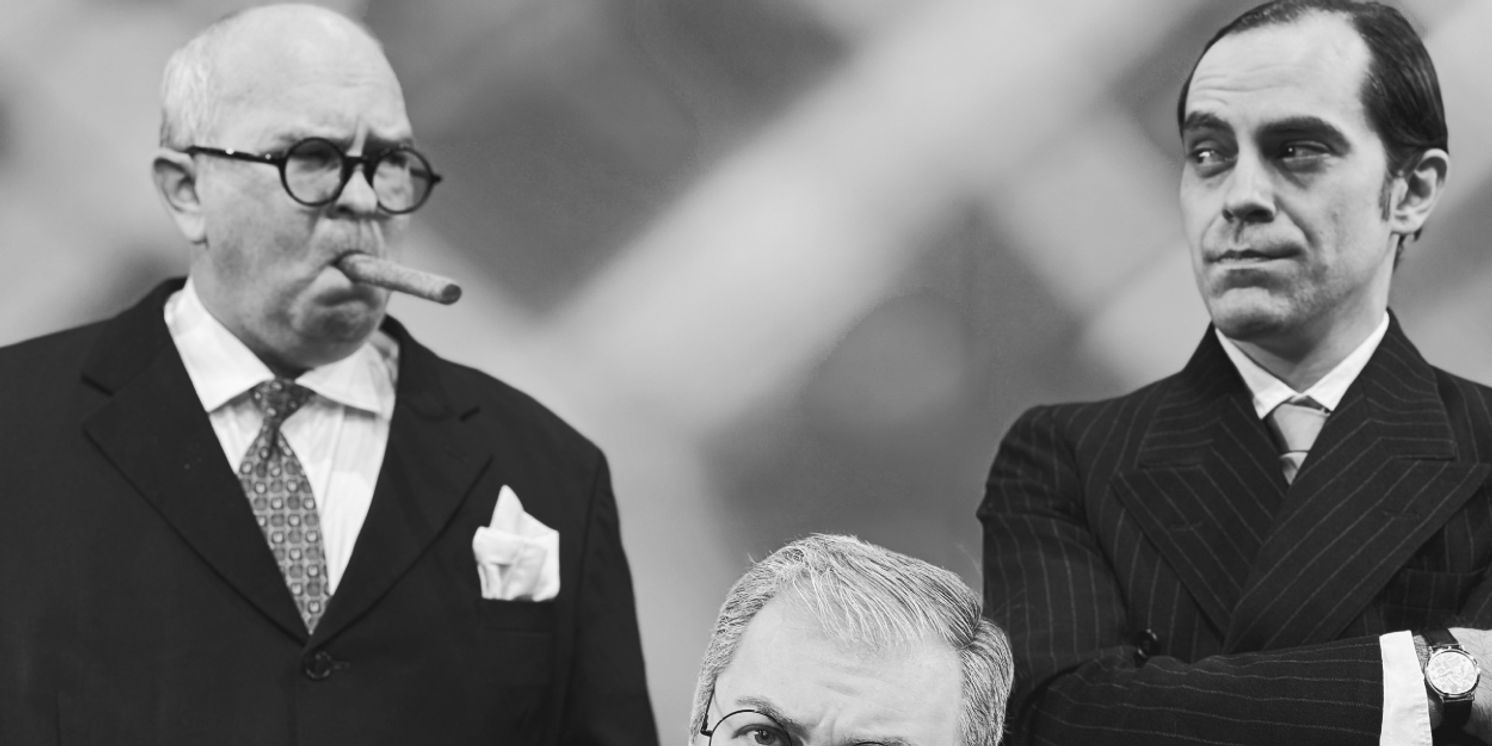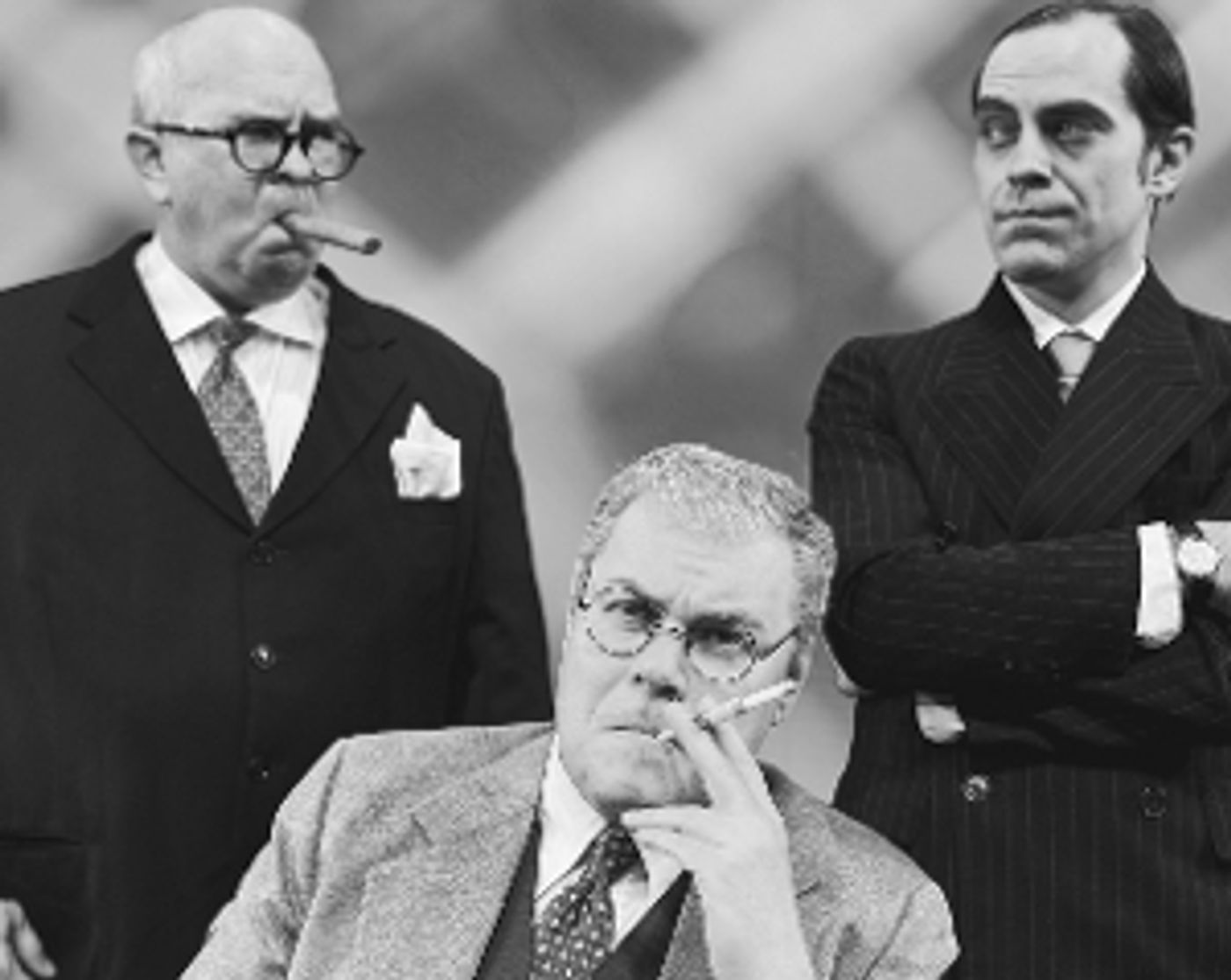Interview: Matthew Michael Moore of THE DRUMS OF WAR at Abbey Theater Of Dublin
Moore out to get a high ‘R’ rating in THE DRUMS OF WAR


After being cast as Winston Churchill for the upcoming play THE DRUMS OF WAR, Matthew Michael Moore has been at war with the letter R.
“There's that first 24 hours which you're really excited about (being cast as Winston Churchill)” Moore said with a chuckle. “Then 24 hours later, you're like, ‘What on earth have I done?’ The sheer amount of information available is truly overwhelming.
“For me, it's all about the R sound. (In Churchill’s famous, ‘We Will Fight Them On The Beaches’ speech, delivered to the House of Commons in 1940), there are so many times when he uses word that have ‘er’ sound. (Moore drops into a thick English accent), ‘We shall never surrender.’
“He constantly says ‘Hitler’ and ‘war,’ which have that unique R sound. It’s a particularly important one to nail because it sounds very British when you do it correctly.”
DRUMS OF WAR’s run at the Abbey Theater of Dublin (5600 Post Road in Dublin) will challenge Moore’s diction. Written by retired Ohio Supreme Court justice Herb Brown, a six-person cast performs the show January 19-20 and 25-27 at 7 p.m. with 2 p.m. matinees on January 20, 21 and 28.
Several top American actors have struggled with the British accent. (Kevin Costner’s performance in 1991’s ROBIN HOOD: PRINCE OF THIEVES is particularly cringeworthy.)
To get it right, Moore studied Churchill’s speeches on YouTube and worked with dialect coach Sheila Landahl via Zoom to help him master that tricky “R” sound. Landahl, who lives in Chicago, and Moore both attended the Academy for Classical Acting at George Washington University.
“Once you start memorizing these lines and getting them in your bones, it's a little hard to change so I needed to get it right from the beginning,” he said. “I take comfort that most people haven’t seen Churchill speak. If I were playing someone from the 21st century that we're all familiar with, it’d be different. If I can nail (Churchill’s mannerisms) about 80% of the time, I'll be happy.”
In DRUMS OF WAR, Harry Lloyd Hopkins (played by Dayton Willison), the Secretary of Commerce who was an architect of the New Deal as well as a confidant of Franklin Delano Roosevelt, serves as a go-between for Churchill and Roosevelt (Scott Douglas Wilson) as Hitler tightens his squeeze on Europe. Josie Merkle (Eleanor Roosevelt), Jacob Erney (Anthony Eden) and Sean Taylor (Brendan Bracken) round out the six-person cast.
“The play is about influence,” Moore said. “Hopkins, who nobody knows about, had tremendous influence over this war. He was an influencer on both sides of the pond.
“Roosevelt took his advice and Churchill took his advice. It's fascinating to get a sense of what went on behind closed doors and who talked who into what.”
The look behind the locked doors is familiar territory for Brown, whose play THE PRICE OF POWER about the relationship between Kennedy and J. Edgar Hoover, debuted at Abbey Theater of Dublin last winter.
Moore enjoys director Joe Bishara’s commitment to produce locally written work.
“The Abbey’s a beautiful space and they've got this great built-in audience that loves to see the shows,” said Moore who played Flynn in A YANKEE GOES HOME last year. “Joe's direction and leadership is awesome. It's inspiring to see the sheer number of productions they do in a (year).”
Mastering the British R is a small victory in a series of battles for Moore. When he was attending an Ohio State football game in 2018, Moore noticed he had this twitch in his hands. A year later, Moore was diagnosed with Parkinson’s Disease, a progressive disorder that affects the nervous system.
According to the Parkinson Foundation, over 90,000 Americans are diagnosed with the disease each year. Actors Michael J. Fox, Bob Hoskins, and Alan Alda, singer Linda Ronstadt, former boxer Muhammad Ali and evangelist Billy Graham are among the celebrities who have either have or had the disease.
Yet Moore said the diagnosis was a devastating blow.
“As an actor, a lot of bad stuff goes through your head,” he said. “I thought, ‘My career is over. What am I going to do next? Can I still pursue this passion?’”
Moore’s shaking hand can be misinterpreted as nervousness when he is on stage. To battle this misconception, he lists being a Parkinson’s advocate in his profile.
“I have learned a couple of tricks (to hide the tremors),” he said. “I will sit on my hands or keep them in my pockets.”
Tremors are an external expression of things going on inside Moore’s body, such as anxiety and depression.
“When your dopamine isn't working correctly, a lot of things go wrong,” he said. “I worry my tremors and whatnot are going to get me to the point where I might not be able to be in these productions.”
Moore created his own play, WHAT I DIDN’T SAY: A JOURNEY THROUGH PARKINSON’S. The play is based on interviews Moore conducted with Parkinson’s patients. Thanks to grants from the Ohio Arts Council, actors Moore and Krista Lively-Stauffer, and director Matt Hermes have been touring “all over” with this play. After Moore extinguishes the final cigar on his role as Churchill, Moore will rejoin the trio in performing the show 2 p.m. and 7 p.m. Feb. 4 at the German Village Meeting Haus (588 S. Third Street in downtown Columbus). Other stops included seven shows inside Ohio, at a Ping Pong for Good festival in Los Angeles last August, and a reading of the play at the World Parkinson’s Congress in Barcelona, last July.
“I became determined by Parkinson’s instead of being devastated by it,” Moore said. “I thought, ‘I'm going to find a way around this sucker.’ I wrote a play so I could be in it as a Parkinson's patient. It did not really matter what my symptoms were, I could still do this play.”
Enter Your Article Text Here!
Videos

